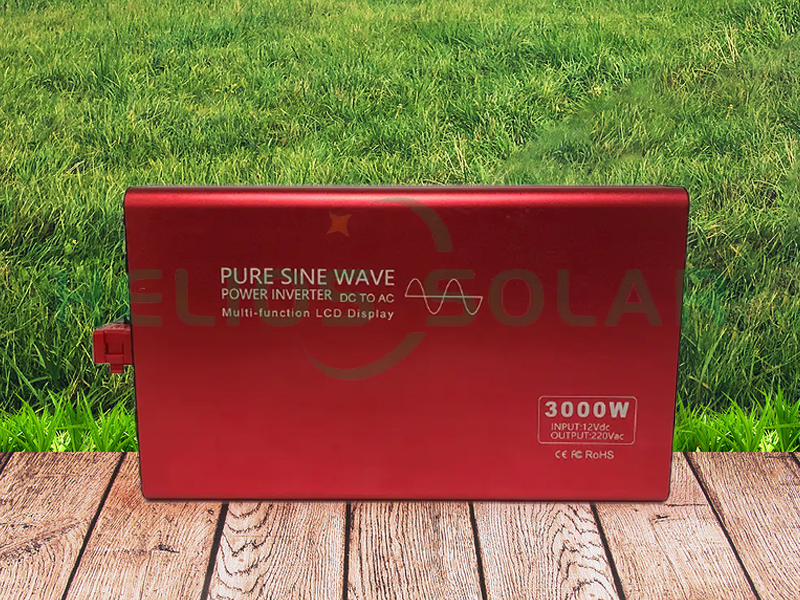Inverters are essential devices in modern electrical systems that convert direct current (DC) into alternating current (AC) to power various appliances and systems. Whether for residential, commercial or industrial use, the quality of the inverter can significantly impact the efficiency, reliability and longevity of your electrical installation. This article will guide you through the key factors to consider when judging the quality of an inverter.
1. Efficiency
Definition and Importance
Efficiency is the ratio of output power to input power, expressed as a percentage. High-efficiency inverters convert more input DC power into usable AC power, minimizing energy losses.
How to evaluate
-Manufacturer Specifications: Check the efficiency rating provided by the manufacturer. High-quality inverters typically have efficiency ratings above 90%.
-INDEPENDENT TESTS: Look for third-party test results or certifications from reputable organizations, such as the California Energy Commission (CEC) or TÜV Rheinland.
2. Total harmonic distortion (THD)
Definition and Importance
THD measures the distortion of the output waveform compared to a pure sine wave. Lower THD means cleaner power, which is critical for sensitive electronics and appliances.
How to evaluate
-THD Rating: High quality inverters usually have a THD of less than 3%. Pure sine wave inverters usually provide the lowest THD.
-User Reviews: Check out user reviews and forums for real performance feedback on THD.
3. Build quality and durability
Definition and Importance
The build quality and durability of an inverter determines its ability to withstand harsh conditions and long-term use.
How to evaluate
-Materials: The casing of high-quality inverters is made of solid materials such as aluminum or high-grade plastic.
-Thermal: An efficient cooling system (such as radiators and fans) is an indicator of good build quality.
-Ingress Protection (IP) Rating: The IP rating indicates the level of protection against dust and water. For outdoor use, look for products rated IP65 or higher.
4. Features and Functions
Definition and Importance
Advanced features and functions enhance inverter performance and user experience.
How to evaluate
-Monitoring and Control: High-quality inverters are often equipped with monitoring systems that provide real-time data on performance, efficiency, and faults.
-Grid tie capability: For solar installations, a grid tie inverter allows you to feed excess power back to the grid.
-Battery Compatibility: Some inverters are compatible with a variety of battery types, including lithium-ion and lead-acid, providing greater flexibility.
5. Security Features
Definition and Importance
Safety features protect the inverter and connected equipment from damage caused by electrical faults.
How to evaluate
-Overload Protection: Prevent damage caused by overload.
-Short Circuit Protection: Prevent short circuit.
-Overheat Protection: Shut down the inverter if it overheats.
-Certifications: Look for safety certifications from organizations such as Underwriters Laboratories (UL) or the International Electrotechnical Commission (IEC).
6. Warranty and Support
Definition and Importance
A good warranty and reliable customer support are indicators of a manufacturer’s confidence in its product.
How to evaluate
-WARRANTY: High quality inverters usually have a warranty of 5 years or longer.
-Customer Support: Check customer support availability and responsiveness via reviews and direct inquiries.
7. Brand Reputation
Definition and Importance
A brand’s reputation can provide insight into an inverter’s overall quality and reliability.
How to evaluate
-Market Influence: Well-known brands with a long history in the market are usually more reliable.
-User Reviews: Online reviews and testimonials can provide valuable insights into inverter performance and reliability.
-Industry Awards: Recognition or awards from industry bodies can serve as good indicators of quality.
8. Cost vs. Value
Definition and Importance
While cost is an important factor, it should be weighed against the value the inverter provides in terms of functionality, efficiency, and reliability.
How to evaluate
-Initial Cost: Compare the initial cost to other inverters offering similar features and specifications.
-Long-term energy savings: Consider the potential energy savings of a high-efficiency inverter.
-Return on Investment (ROI): Return on investment is calculated based on the inverter’s service life, efficiency and potential energy savings.
In conclusion
Judging the quality of an inverter requires a comprehensive evaluation of various factors, including efficiency, THD, build quality, functionality, safety, warranty, brand reputation, and cost. By carefully considering these aspects, you can make an informed decision and choose an inverter that meets your needs and provides reliable performance for years to come. Remember, investing in a high-quality inverter not only ensures the smooth operation of your electrical system, but also contributes to long-term energy savings and sustainability.
If you need inverters, welcome to contact pure sine wave inverter supplier Radiance for more information.
Post time: Sep-13-2024


